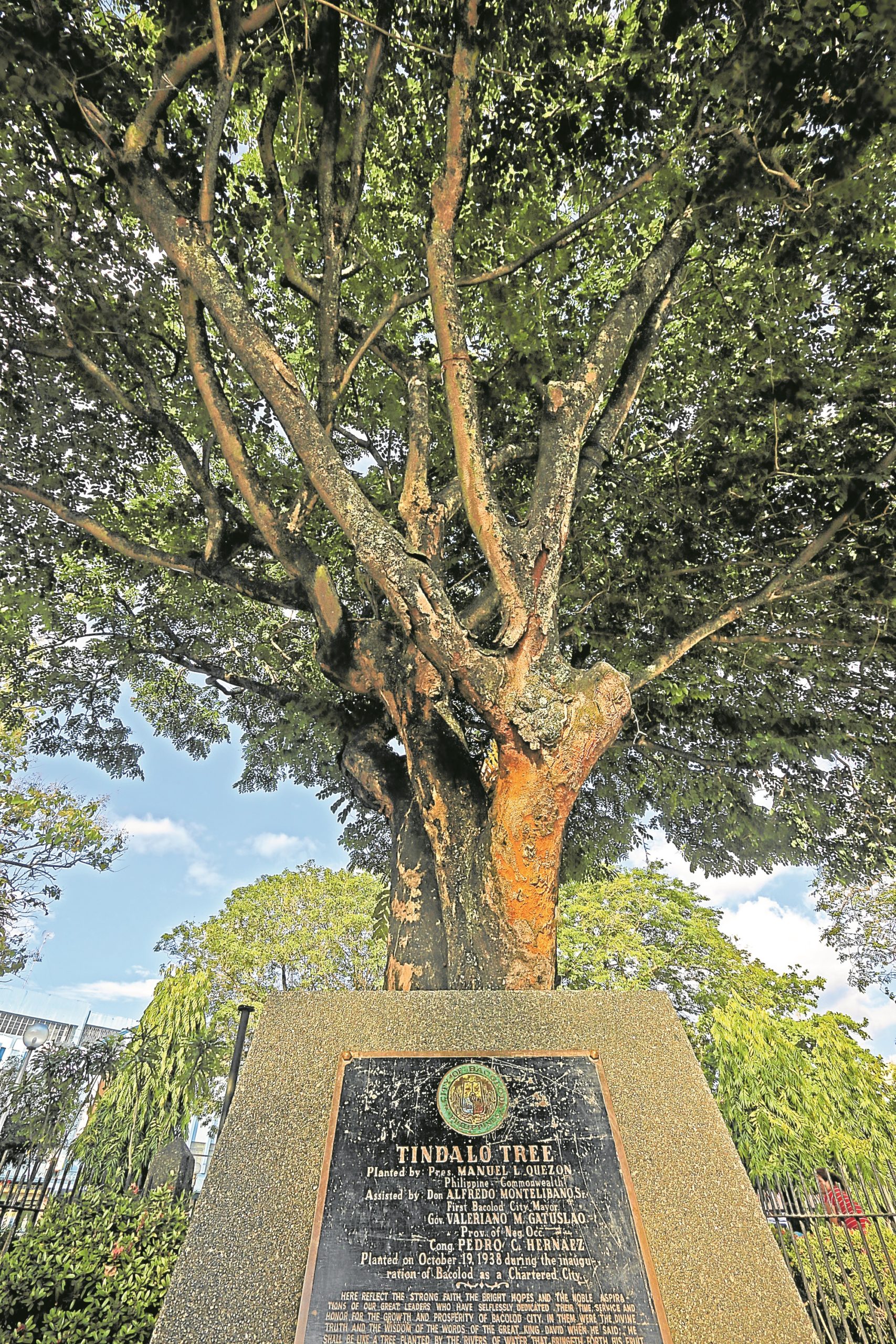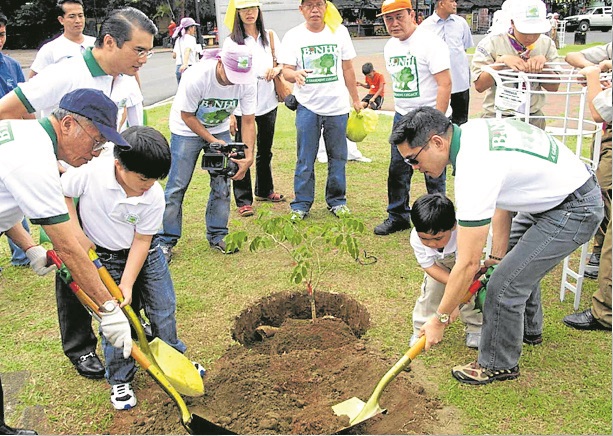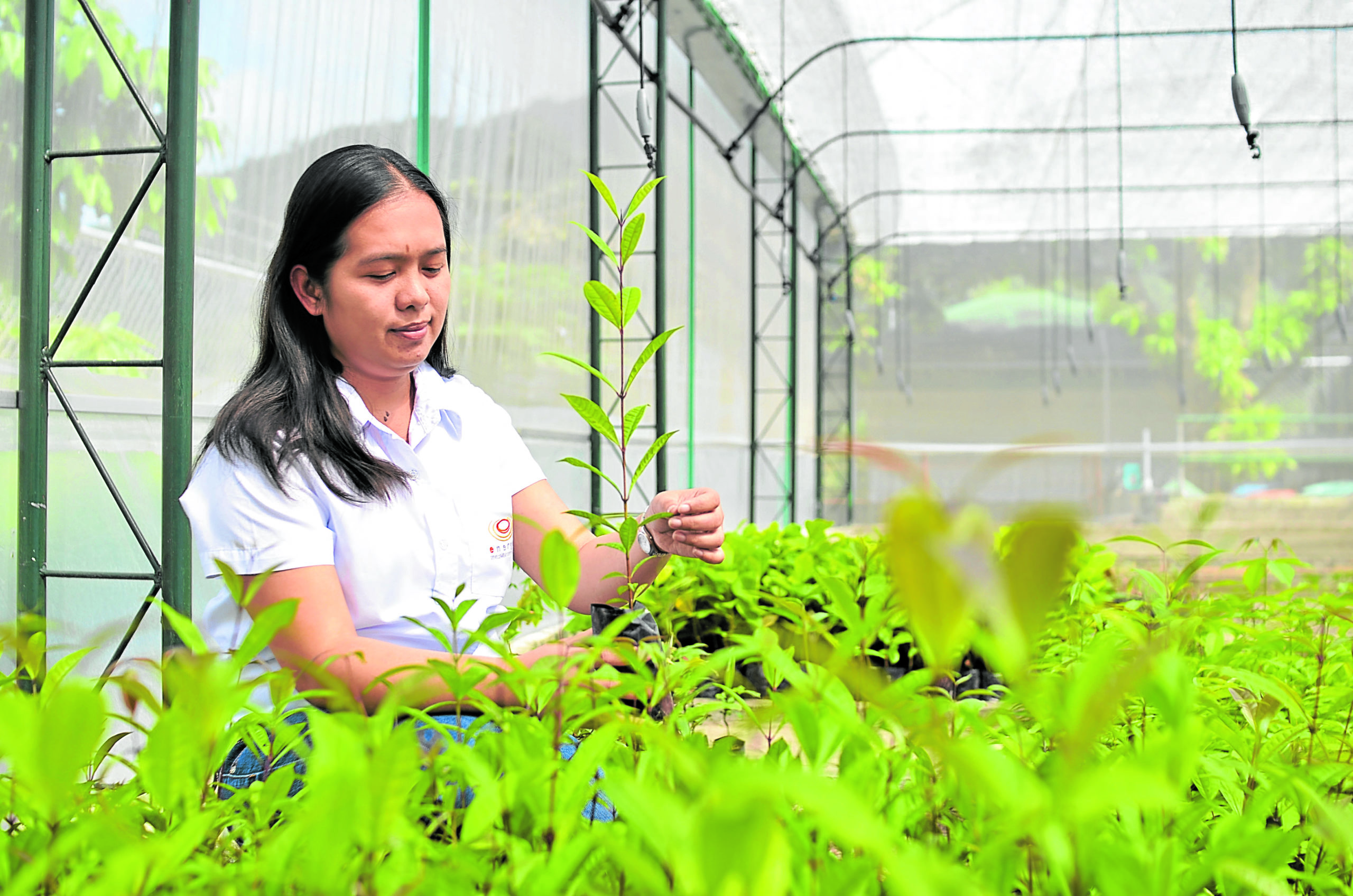Threatened PH native trees get a lifeline

EDC’s BINHI program traces its roots to the seedling from the Tindalo mother tree in Bacolod that President Quezon planted in 1938. —CONTRIBUTED PHOTOS
What started in 2008 with the planting of a single seedling from the Tindalo mother tree that Commonwealth President Manuel L. Quezon planted in 1938 in Bacolod City has grown 12 years later into a multi award-winning program that seeks to rescue Philippine native trees from extinction.
Spearheaded by Lopez-led geothermal leader Energy Development Corp., the BINHI program today is responsible for the planting of 6.44 million native and fruit tree seedlings on close to 10,000 hectares of land inside its geothermal reservations across the country.
BINHI was born out of the need to maintain lush forests to sustain EDC’s geothermal reservoirs but it has evolved into a multistakeholder advocacy program that centers on the use and propagation of Philippine native tree species that are more appropriate for greening programs than fast-growing but invasive exotic tree species.
To multiply the benefits of the BINHI program, EDC early on forged collaborative partnerships with like-minded individuals and institutions that can help it manage 270,000 hectares of geothermal watersheds, equivalent to 1 percent of the country’s total land area.
Close to 90 farmer-associations have been tapped as partners in the ambitious environmental sustainability program. With BINHI, the former slash-and-burn farmers have been transformed into stewards of the forest, on which they depend for their livelihood.
“This paradigm shift of the farmers in our host communities has likewise given them a viable source of livelihood since EDC incentivized them for helping us manage our BINHI areas,” said Allan Barcena, head of EDC Corporate Social Responsibility and Public Relations group.
One of the most notable BINHI initiatives is the Baslay coffee program.
Operated by the Baslay Farmers Association (BFA) in Dauin, Negros Oriental, its three generations of farmers have learned the value and income potential of taking care of the forests that also take care of them, EDC said.
Through BINHI, Baslay’s community forest is now a refuge to 113 species of birds and one of the primary sources of quality coffee (robusta and arabica) in Central Visayas. More importantly, the former kaingineros are now masters of interplanting coffee with native tree species.
EDC said the BFA was the first farmers’ association in Negros Oriental to produce premium and quality organic coffee recognized by globally trained baristas from various parts of the Philippines. BFA even opened its own coffee shop near the Baslay Hot Springs in 2018 so that more people can taste its coffee.
Baslay’s achievements did not go unnoticed, with the corporate social responsibility program bagging the Gold Standard Award for Corporate Citizenship last year, besting entries from Asia Pacific and the Middle East.
Baslay has likewise earned the distinction of being the most outstanding CSR program for enterprise development of CSR Guild, an award giving body organized by the League of Corporate Foundations, and has received the Grand Anvil award from the Public Relations Society of the Philippines.
Regenerative BINHI partnerships
To mark its 12th year, EDC launched the BINHI Biodiversity Hub in its Mount Apo Geothermal facility that showcases Mount Apo Natural Park’s rich flora and fauna, which the company has been cultivating since 1997 when it started operating its 108-megawatt geothermal facility at the foot of Mount Apo, the country’s tallest mountain.
The hub houses the newly operational Vegetative Materials Reproduction (VMR) or automated tree species nursery, as well as the biodiversity education center and EDC’s BINHI arboretum.
“Our Mindanao tree species collection of 75 out of EDC’s 96 flagship BINHI native tree species can be found inside the arboretum,” said Myrissa Tabao, head of EDC’s Corporate Social Responsibility team in Mount Apo Geothermal Project. “We likewise propagate our priority species through the adjacent VMR nursery that allows us to fast track the production of its seedlings via automated misting system.”
These Mindanao tree species include Pinulog (Ganua obovatifolia) that is endemic to Lanao del Norte and Matutum, South Cotabato; Basilan Yakal (Hopea basilensis) and Basilan Apitong (Dipterocarpus eurynchus) of Basilan and Zamboanga Sibugay, Mindanao Narek (Hopea brachyp tera) of Zamboanga City and Zamboanga Sibugay and Mindanao Narig (Vatica mindanensis) in Zamboanga.
To recall, EDC forged a partnership with the Department of Environment and Natural Resources-Ecosystems Research and Development Bureau for the propagation of 11 of the country’s most rare and threatened tree species, which include four Mindanao endemic species.
This VMR nursery is EDC’s fourth. The first two were established in the company’s Northern and Southern Negros facilities while the third was put up in Antipolo City, Rizal, to cater to requests for BINHI seedlings from EDC’s growing list of partners.
“Our BINHI partnerships that enable us to bring back to abundance our threatened Philippine native tree seedlings likewise set our program apart from other greening programs,” Barcena said.
To date, EDC has 183 BINHI partners that helped the company establish 15 arboreta these past 12 years, with six more lined up this year.
EDC will provide the seedlings to the partner groups, which will in turn be responsible for the nourishment and maintenance of the tree species. Further, the EDC BINHI team will provide technical assistance to the latter to ensure the growth of the native tree seedlings.
EDC’s BINHI partnerships became global in 2019 after the company was chosen to be the International Union of Conservation of Nature’s (IUCN) only Philippine partner for its Global Tree Assessment of 800 Philippine native tree species through its secretariat, Botanic Gardens Conservation International.
As of December 2020, EDC has completed the global tree assessment for 800 Philippine endemic tree species, with 498 already published in the IUCN Red List of threatened species, including 38 BINHI priority species.
The partnership will likely be extended to include 150 additional Philippine endemic tree species and 400 near-endemic species or those that can be found in the Philippines and maybe in one or two other countries.
“We hope that more partners will be encouraged to collaborate with us in saving the earth by helping us bring back to abundance our threatened Philippine native tree species through BINHI. This will all be our greening legacy,” Barcena said.


